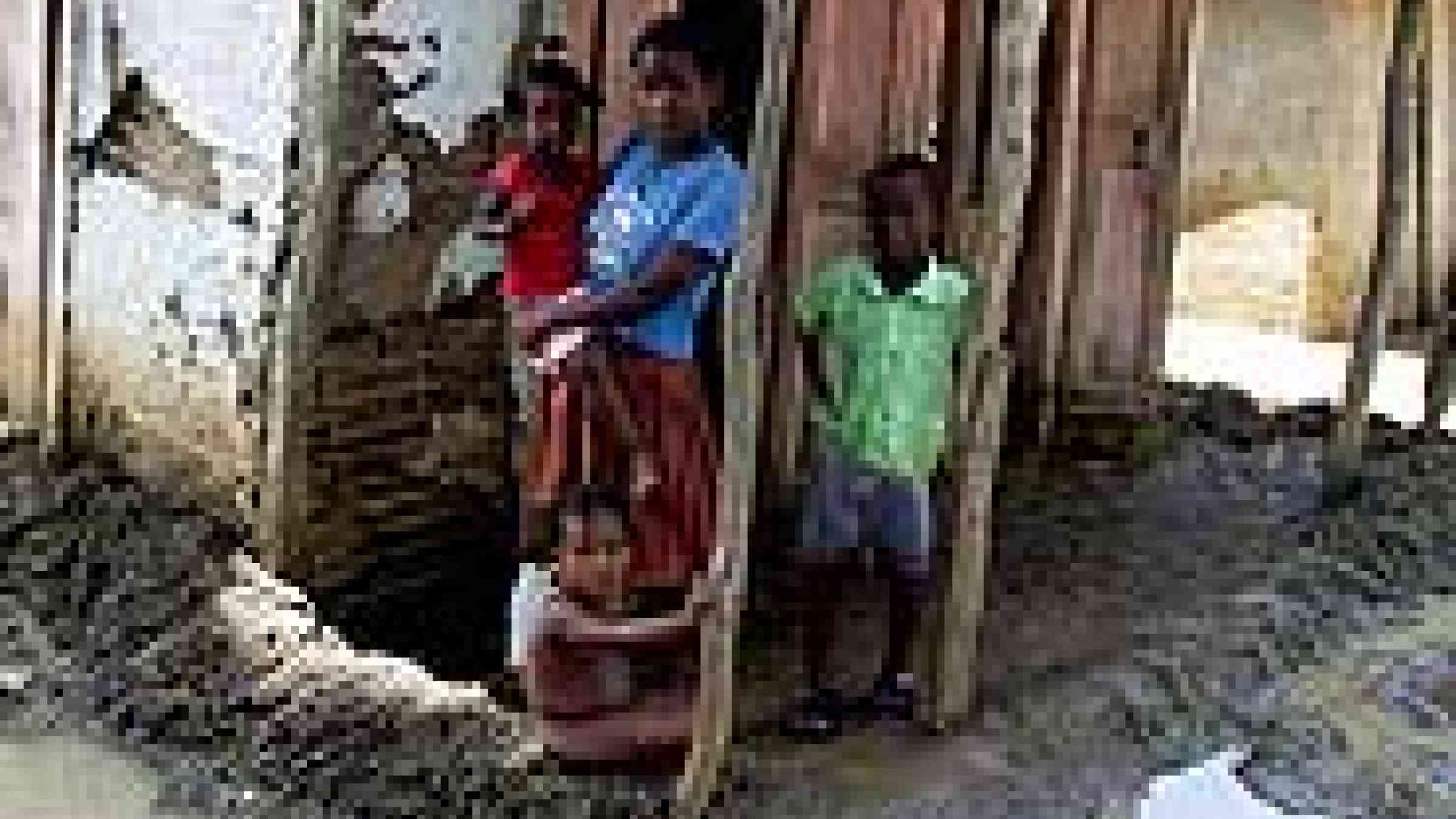Please help us improve PreventionWeb by taking this brief survey. Your input will allow us to better serve the needs of the DRR community.
Appeal for hurricane relief in Haiti badly under-funded, UN aid chief says

Photo copyright WFP
Urgent action is required to respond to the “worst disaster in the last 100 years” to strike Haiti, the United Nations relief chief reported today, warning that aid agencies remain far short of the millions they need to help the country recover after four deadly hurricanes this year left 800 people dead and affected another 1 million.
Only 40 per cent of the $107 million flash appeal aimed at assisting the emergency relief effort has been pledged, the Under-Secretary-General for Humanitarian Affairs John Holmes told reporters in New York as he urged donors to contribute more humanitarian aid.
“Even that 40 per cent is nowhere near enough of what we’re going to need for the next six months or so for people in Gonaïves, and Gonaïves is not the only place affected by any stretch of the imagination,” Mr. Holmes said on his return from a two-day visit to Haiti, which was hammered by four successive storms in as many weeks from mid-August to mid-September.
“We will be putting out a revised appeal in the next couple of weeks to include more early recovery elements and not just the immediate humanitarian elements.”
The Under-Secretary-General stressed that further funds will be needed to help Haiti, the poorest country in the Western Hemisphere even before these storms, transition from relief to reconstruction and development and prevent the tragedy from repeating itself in the future.
Gonaïves, the hardest-hit city, is still a “dramatic and grim site” even six weeks after the last hurricane hit, said Mr. Holmes. Some 30,000 people are still taking refuge in city shelters, which are very often ill-equipped schools, and some of those who have gone back to their homes are camping on roofs and in courtyards.
There is a large new lake just outside Gonaïves, which did not exist before and now covers the bridge and roads leading to the city, and living conditions have been made even more difficult by huge amounts of mud and stagnant water.
“If urgent action is not taken on the disaster risk reduction front, then we’re simply going to see more tragedies in the future,” warned Mr. Holmes.
He said that this disaster will happen again if immediate work is not done on improving the ability to channel water from the surrounding hills, such as repairing and reinforcing river banks, reforestation of the affected areas so that the water does not flash flood and mudslide, and relocating the residents of the vulnerable districts of Gonaïves.
Mr. Holmes, who is also the UN Emergency Relief Coordinator, said that an additional allocation from the UN’s Central Emergency Response Fund (CERF) would be released on top of the $4.3 million allocated over a month ago, bringing CERF funding to $10 million.
The UN Food and Agriculture Organization (FAO) also announced an agreement today to provide Haiti with a $10 million package to help boost the country’s agricultural sector, whose harvest was decimated by the recent hurricanes.
Haiti is facing the double challenge of recovering from the series of hurricanes, which left an estimated $500 million in losses, and feeding its people who were already facing food shortages before the latest natural disasters hit the country, according to an FAO press release issued today.
An average 18 per cent annual increase in food prices over each of the past four years - affecting staples such as rice, maize, beans and oil - has resulted in widespread hunger, economic crises, as well as social and political unrest.
FAO has agreed on a rescue package with the Government to boost farming output in the current and upcoming agricultural season by supporting hundreds of thousands of smallholder farmers - 80 per cent of the agricultural workforce - many of whom are severely under-nourished.
More than 240,000 farmers will receive an agricultural parcel consisting of vegetable seeds, cereal seeds, manioc, sweet potato and banana plants among other planting inputs.
The International Fund for Agricultural Development (IFAD), a UN agency dedicated to eradicating rural poverty in developing countries, is funding the $10.2 million agreement as part of FAO’s recently established Initiative on Soaring Food Prices (ISFP).
The United Nations High Commissioner for Human Rights (OHCHR) Navi Pillay will also make a four-day visit to Haiti next week, when she plans to meet with President René Préval and other representatives of Government and civil society to discuss judicial reforms, and the extent to which economic and social rights are subject to legal jurisdiction.
Explore further
Please note: Content is displayed as last posted by a PreventionWeb community member or editor. The views expressed therein are not necessarily those of UNDRR, PreventionWeb, or its sponsors. See our terms of use
Is this page useful?
Yes No Report an issue on this pageThank you. If you have 2 minutes, we would benefit from additional feedback (link opens in a new window).